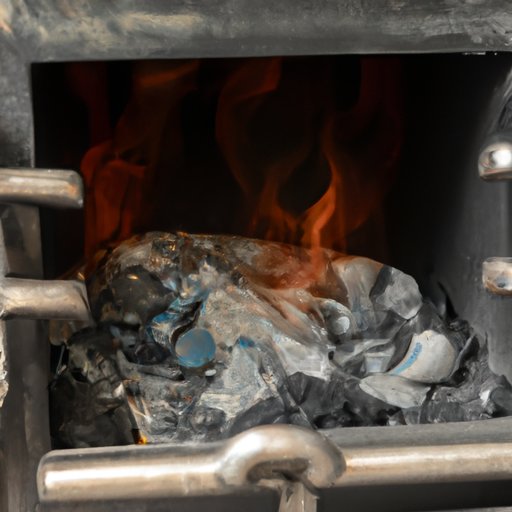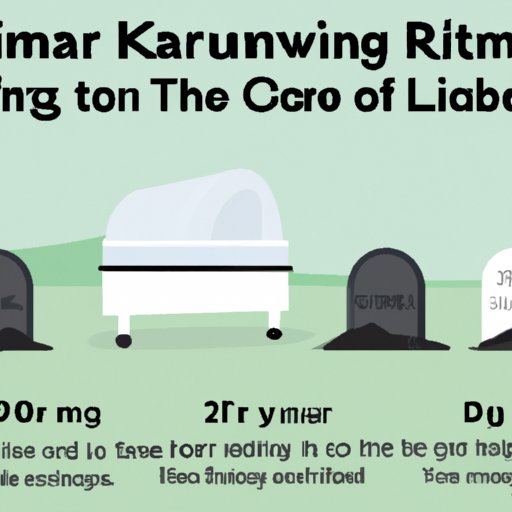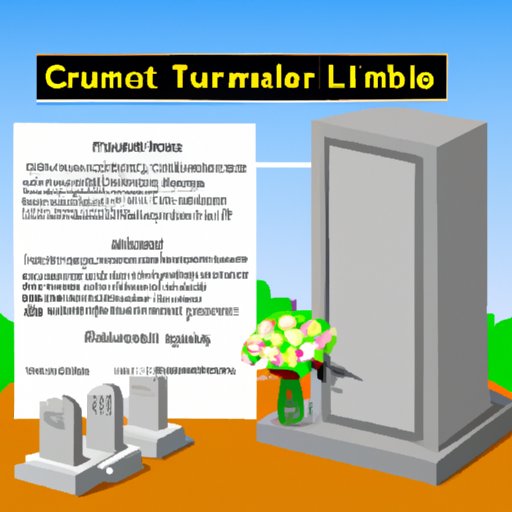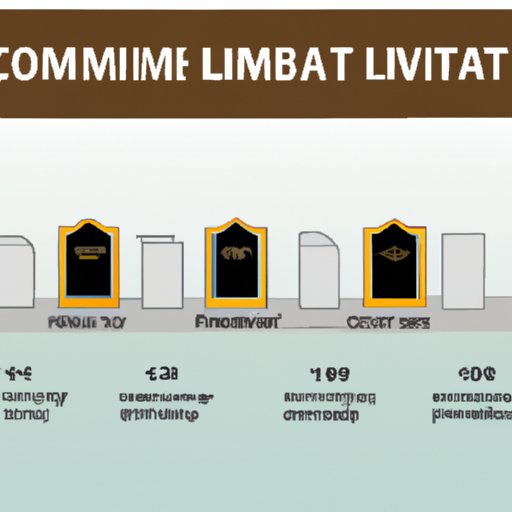Introduction
Cremation is a process that involves the use of intense heat to reduce a deceased body to its basic elements and ashes. It is an increasingly popular choice for many people as an alternative to burial. While there are many factors to consider when deciding on the right type of funeral service, understanding the process of cremation and the length of time it takes can be helpful in making this difficult decision.

Exploring the Process of Cremation: A Look at How Long it Takes
Cremation is typically divided into two types: direct cremation and traditional cremation. Direct cremation is when the body is taken directly to the crematory with no services or viewing prior. Traditional cremation is when there is a service or visitation prior to cremation, usually followed by a memorial service afterwards. There are different steps involved in each type of cremation, and the length of time required for each step can vary greatly.
Answers to Common Questions About Cremation: How Long Does it Take?
The length of time necessary for cremation depends on several factors, including the type of cremation chosen, the number of people involved in the process, and the availability of the crematory. Generally speaking, a direct cremation requires less time than a traditional cremation, as there are fewer steps involved. As such, a direct cremation can take anywhere from a few hours to two days, while a traditional cremation can take up to four days.

An Overview of the Cremation Process and How Long it Takes
When considering cremation, it is important to know that certain steps must be taken before the actual cremation can begin. The first step is the removal of the body from the place of death, which can take up to 24 hours depending on the location. Next, the body must be prepared for cremation, which includes dressing the body and placing it in a casket or container suitable for cremation. This process can take another 24 hours. Finally, the paperwork must be completed, which can take up to one day.
Once all of these steps are complete, the actual cremation can begin. The average time frame for the actual cremation process is between two and four hours, depending on the size and weight of the body. After the cremation is complete, the ashes will be ready to be collected within one to two days.
The Timeline of Cremation: How Long Does it Take?
When considering the timeline of cremation, it is important to remember that there are several factors that can affect the length of time. For example, if the crematory is busy or there is a backlog of bodies, the process may take longer. Additionally, if there are complications with the paperwork or other administrative tasks, this can also add to the timeline.
In general, the average timeline for a direct cremation is two to three days, while the average timeline for a traditional cremation is three to four days. However, it is important to keep in mind that these timelines can vary depending on the circumstances.

Understanding the Length of Time Required for Cremation
There are several reasons why the length of time required for cremation is so long. One reason is that the process involves several steps that must be completed before the actual cremation can begin. Additionally, the paperwork involved in the process can be extensive, and this must be completed before the cremation can proceed.
“Cremation is a complex process that involves many steps, most of which require legal paperwork,” explains Dr. Mark Dworkin, professor of mortuary science at the University of Maryland. “This paperwork has to be completed before the cremation can start, so it’s important to factor in the extra time needed to complete these steps.”
What to Expect from Cremation: A Breakdown of How Long it Takes
When considering cremation, it is important to understand the typical timeline involved in the process. As mentioned earlier, the average timeline for a direct cremation is between two and three days, while the average timeline for a traditional cremation is between three and four days. However, it is important to remember that these timelines can vary depending on the circumstances.
Other factors can also affect the timeline, such as the availability of the crematory or complications with the paperwork. Additionally, if the body needs to be transported from a distant location, this can also add to the timeline. It is important to be aware of all of these potential delays when planning for a cremation.
A Guide to Cremation: How Long Does it Take?
Navigating the process of cremation can be difficult, especially when trying to understand the timeline involved. Fortunately, there are many resources available to help those who are considering cremation. These resources can provide information about the different types of cremation, the steps involved in the process, and the average timeline for each step.
It is also important to understand the local laws and regulations regarding cremation, as these can vary from state to state. Many funeral homes offer services to help navigate the process, and they can provide valuable information and guidance.
Conclusion
Cremation is a complex process that requires a significant amount of time to complete. Understanding the timeline involved in the process, as well as the various factors that can affect it, can help make the process easier to navigate. With the right resources and guidance, those who are considering cremation can better understand the timeline and what to expect from the process.
(Note: Is this article not meeting your expectations? Do you have knowledge or insights to share? Unlock new opportunities and expand your reach by joining our authors team. Click Registration to join us and share your expertise with our readers.)
